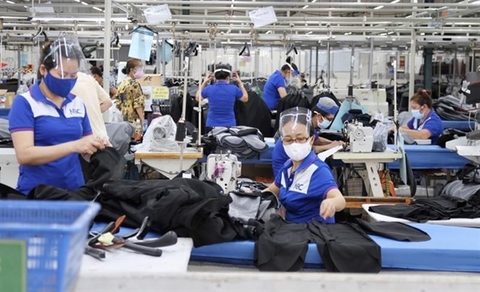
Rising costs (51 per cent), which was in the top two concerns in 2021, continue to be one of the major concerns of the employers in 2023. — Photo vneconomy.vn
Three in five employers in Việt Nam see competition for talent as the number one business issue influencing their strategy for employee benefits in 2023.
Despite rising costs, an increasing number of employers are targeting an “above market” benefits position to attract top talent. That is according to the 2023 Benefits Trends Survey by WTW, a leading global advisory, broking and solutions company.
The survey found that competition for talent (60 per cent) is the most important factor influencing organisations’ benefits strategies in Việt Nam. Rising costs (51 per cent) continue to be one of the major concerns of the employers in 2023, a sign that employers are increasingly under pressure to balance their budgets and evolve benefits strategies. Economic weakness (42 per cent) factor which was not one of the top external influences driving benefits strategy in 2021, now takes priority at third place. Organisation restructuring factor has dropped to fourth in priority in 2023 compared to third in priority in 2021.
The ambition to improve benefits continue to compete with the increasing pressure to manage costs and optimise the value of benefits programmes. Nearly two third of employers cited that persistence of higher inflation (63 per cent), and a weakening economy and business environment (68 per cent) would have a significant impact on their benefits budgets in the next two years.
Bùi Thị Hoàng Yến, Director of Health & Benefits, WTW Vietnam, said: “The current state of the economy is putting employers in Việt Nam in a precarious position, balancing between winning the competition for talent and contending with the rising cost of services, all while budgets remain tight.
"Despite the challenges, employers recognised the urgency in delivering more efficient benefits programmes and remained committed to improving their portfolios. The key now will be to develop a truly equitable approach that not only tailors to the individual needs of the workforce, but also ensures that the value of their investments are optimised to become more cost-effective.”
The results of the Việt Nam survey mirror the views of employers from the wider Asia Pacific (APAC) region, which also identified competition for talent, rising costs, flexible work arrangements and the focus on inclusion and diversity as the top four business issues influencing their organisations’ strategies for benefits.
Looking ahead, employers in Việt Nam recognise the importance of achieving “above market” positions for their benefits portfolios over the next two years. While only 19 per cent of employers describe their current financial wellbeing/short-term finances benefits as “above market” relative to their main competitors, 49 per cent desire to reach this position in the next two years. Other top three benefits include career, training and development, flexible work arrangements, and health benefits.
Yến added: “Our survey shows that employers are rethinking their benefits strategies to achieve ‘above market’ positions and adapt to employees’ fast-evolving preferences in the near future. This will be a critical step in bridging the gaps of their existing programmes and more importantly, help to effectively manage business priorities such as rising cost and the competition for talent."
The survey was conducted between March and April this year with responses from a total of 5,233 employers across 95 markets globally, representing 22.9 million employees. Among which, 1,746 employers are based in Asia Pacific, representing 4.9 million employees. In Việt Nam, 219 employers took part in the survey, representing 0.2 million employees. — VNS